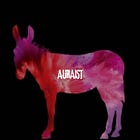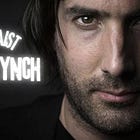June's literary prizes: the best-written books on the shortlists
Three new picks. Plus authors tell us why prose style matters.
Coming soon for paid subscribers: the best-written book of the month.
June’s literary prizes
—The Walter Scott Prize for Historical Fiction is open to novels published in the previous year in the UK, Ireland or the Commonwealth. The winner will be announced on the 12th of June.
Praise for our pick:
"A wedding of Cormac McCarthy with Flann O’Brien; a western but also the most Irish of novels; a tragedy written as farce… inspiring joy with every incident, every concept, every sentence."—The Guardian
The Sunday Times historical novel of the year
Picked as a book of the year by the Guardian, New Statesman, Observer, Irish Times, Independent, Times Literary Supplement, Scotsman, the Times and the Economist
The best-written book on the Walter Scott shortlist is The Heart in Winter. Read on here »
—The winner of the Women's Prize for Non-Fiction will be announced on the 12th of June, along with the winner of the prize for fiction (see below).
First, they were bright white dots moving in the distance between sea and sky. Then, as I reached the end of the land at the cliff’s edge, the gannets were everywhere. From eyeline to the waterline almost two hundred metres below, huge birds filled all the available space. They followed invisible contours through the air in every direction and on every horizontal plane. Somehow, silently, they knew to steer to avoid each other, their black-tipped wings never touching. Those not in flight were sitting on every piece of cliff with room to land. They were lined up on ledges, one bird deep, and the flatter patches of scree were studded in nests, always spaced a sharp beak’s biting distance apart.
The best-written work on the shortlist is What the Wild Sea Can Be. Read on here »
—The Women's Prize for Fiction
Praise for our pick:
'Enormously entertaining'-the Times
'As funny as it is moving'—the Guardian
'A joy of a debut'—David Mitchell
Named a Most Anticipated Book by Electric Literature, Publishers Weekly, and The BBC.
The best-written work on the shortlist is The Persians. Read on here »
At the above links you’ll find:
The opening pages of our picks. Make up your own mind about the quality of the prose.
The full list of the books we considered.
Information about submitting to Auraist. If we publish your work, we’ll invite you to answer our questions on prose style. Your answers will be considered for inclusion in the published collection of these answers by many of the world’s best writers.
Please consider completing our reader survey or click the Like (heart) button and help spread the word about the only publication set up solely to champion beautiful prose and battle the Replicant Voice.
Best-written books of the century
‘You clearly believe that the quality of your prose matters, but could you explain why this is so?’
Christopher Cokinos:
Richard Hugo’s famous line, if you want to communicate with someone, get on the phone. That’s fine. If you want a sentence to linger with a reader, to vivify to embody thought and perception, then make that sentence sing.
Style is a form of thought. It’s not decorative. It’s not performative. Or it shouldn’t be. It is a way to express connotation, yes, but in doing so, style—for me at least—also taps into and speaks to intellectual themes.
How many nonfiction writers are, for example, consciously or from muscle memory, using the connotations available to them in slant rhyme? How many of them can scan a sentence and manipulate where the stresses are falling not only to affect mood but to tie certain patterns together from other parts of the work, making, as it were, a subtle argument? I may not be very successful at that. But I try.
Read on here »
*
Stephen Graham Jones:
Dean Cundey, a cinematographer, says that, in pre–production for Halloween (the 1978 one), he realised that John Carpenter wasn't using the camera to record the story, but to tell it. That's how prose should work in fiction, I think, or, that's the kind I prefer to read, anyway.
The stack of decisions that have to be made about word-choice and -order, punctuation, rhythm, all of the many pieces we have to play with, they're all vital and telling. The stronger the prose in a work is, the more the length contracts, too. Just because it's becoming more and more efficient—it's doing more with less, or, in less space, anyway.
What I want from prose fiction is the certainty that, if this is translated out of its native language, something is going to be lost. Because the prose isn't just a window to look through, down onto the story. It's not a lens that focuses our attention on scenes, on characters, on developments. The line is where all of those things happen.
Read on here »
Recommended
Coming soon we have more of the best-written works on the shortlists for June’s literary prizes, and more authors answer our questions on prose technique. Plus more selections from our subscribers’ submissions.
Our archive has dozens of author articles on prose style, hundreds of picks from recent releases and prize shortlists, and the best-written books of the century. A paid subscription gives you full access to this archive.
Thanks for reading Auraist and helping to support fine writing.
Sean McNulty










